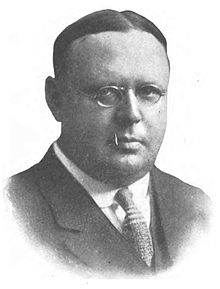George W. Fuller
George Warren Fuller was a sanitary engineer who was also trained in bacteriology and chemistry. His career extended from 1890 to 1934 and he was responsible for important innovations in water and wastewater treatment. He designed and built the first modern water filtration plant, and he designed and built the first chlorination system that disinfected a U.S. drinking water supply. In addition, he performed groundbreaking engineering work on sewage treatment facilities in the U.S. He was President of both the American Water Works Association and the American Public Health Association, and he was recognized internationally as an expert civil and sanitary engineer.
George W. Fuller was born in Franklin, Massachusetts in 1868. After his primary and secondary education, he was accepted at the Massachusetts Institute of Technology at the age of 16. He deferred his attendance at MIT for one year due to the death of his father. At MIT, he studied under William T. Sedgwick and completed his bachelors degree in chemistry in 1890. Sedgwick was able to send Fuller to Berlin, Germany to study under the chief engineer for the Berlin waterworks, Carl Piefke. During his stay in Berlin, Fuller studied bacteriology at the Hygiene Institute of the University of Berlin.
Source: Wikipedia

